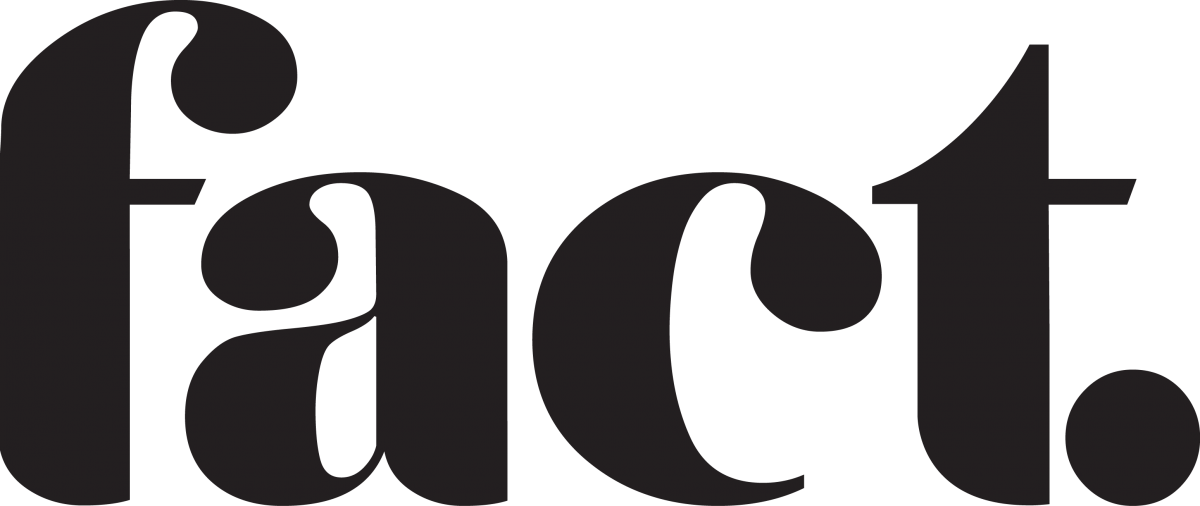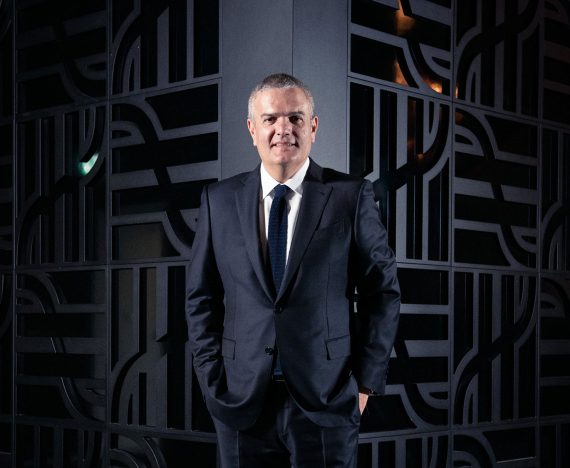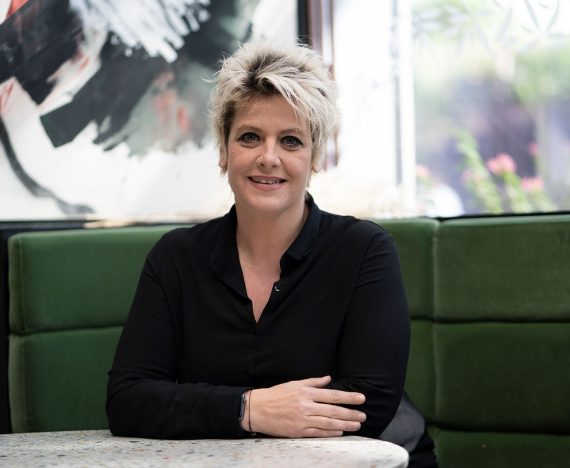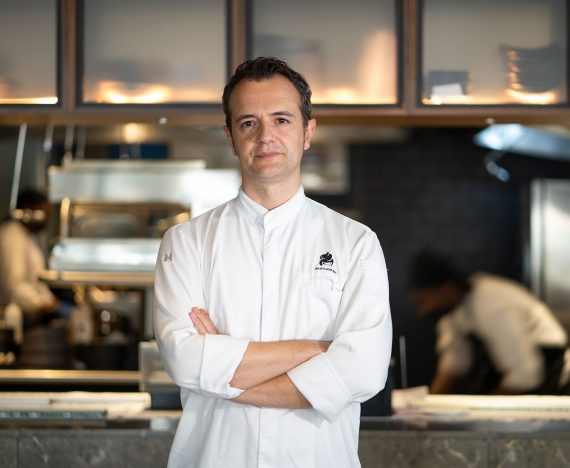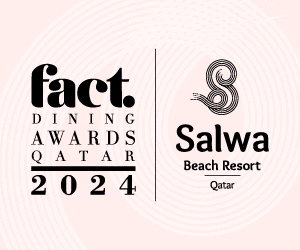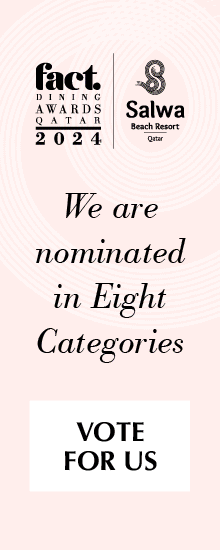THE MONEY MAMA
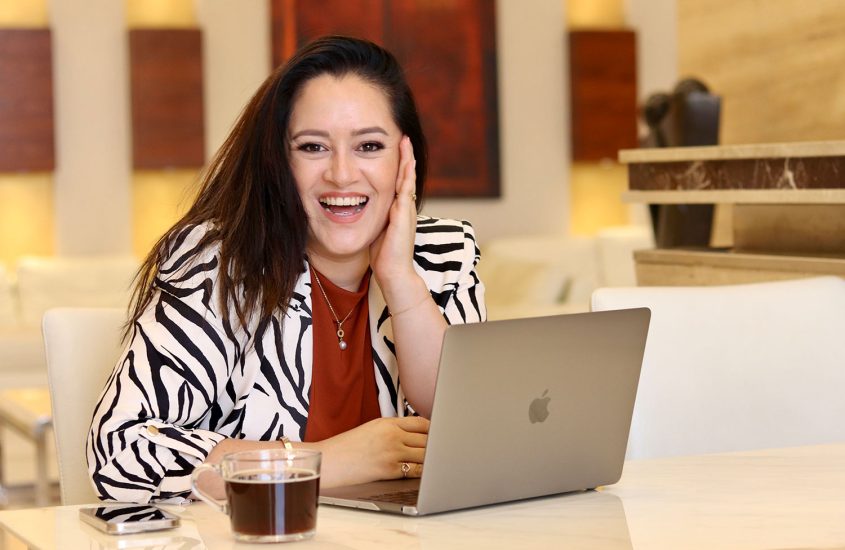
Malu Marsault is the founder of female-focused financial movement This Mama Invests, the first company in the GCC to help women create generational wealth. We decided to find out more.
Please tell us a bit about This Mama Invests – what is it and how did it come about?
In March of 2020 I found out I was pregnant, just a couple of days after the hotel I was working for was closing to the public as it became a facility for Covid positive cases.
When I announced this unplanned pregnancy to my husband, he freaked out saying: “How did this happen?” “Is this true?” “What are we gonna do? We have no money!”
I hid in the toilet to cry it out. But then I realised I had two options. Do nothing and accept that money will be a source of anxiety and stress. Or take things into my own hands, understand how to improve my finances and start creating wealth.
My husband and I don’t come from rich families. Quite the opposite, we both grew up with financial struggles and I had the feeling we were about to repeat history. That was exactly the moment when I said to myself: “Enough is enough. I’m gonna do whatever it takes to break this cycle.” At first, all I wanted was to make more money and not worry financially.
I started digging down and indulged on self-education and coaching programmes to learn all I could about wealth building. It was (and still is) a transformational journey because I quickly realised we were handling our money wrong. But at the same time, I realised most of us struggle financially because nobody teaches us about money. We grow up conditioned to follow the traditional path of going to university, finding a job, working for 30-40 years, saving our money in the bank and then retiring at 60. At school we don’t learn how to actually build wealth, all we know about money is learned from our parents or caregivers and so there are many financial struggles and money-limiting beliefs that are passed from generation to generation.
I was so in shock with all what I was learning that I decided to go to social media (especially TikTok) and started sharing what I was learning and this is how This Mama Invests was born. I felt it would be too selfish to keep this knowledge just to myself.
How did you educate yourself in this sector and become a certified ‘Money Coach’ – and what is a money coach?
I tapped into the power of self-education. I joined an investing course followed by a 12-month accelerator programme from Invest Diva that had a money coach certification. I also travel once a year to Florida to attend Funnel Hackers Live, the biggest digital marketing conference for entrepreneurs that have or are building their seven- or eight-figure business, to learn from world-class speakers and to network with high-net-worth individuals.
Something really powerful I learned is that to achieve any results fast, you need to find a mentor that has already done it and learn the shortcuts. So, I started learning from multi-millionaire mentors like Kiana Danial, Kim Constable and took additional business coaching programmes from Dean Graziosi and Tony Robbins. Trying to figure everything out by yourself is literally a waste of time..
A money coach is basically someone that helps you get better with your money; helps you grow wealth and achieve your financial goals. I created my signature Wealth Creation System which focuses on six pillars (investing is only one of them). This system helped me create exponential growth and it’s the system I use for myself and teach to my students. You can learn the exact breakdown of this system when you attend my free masterclass (www.thismamainvests.com/masterclass).
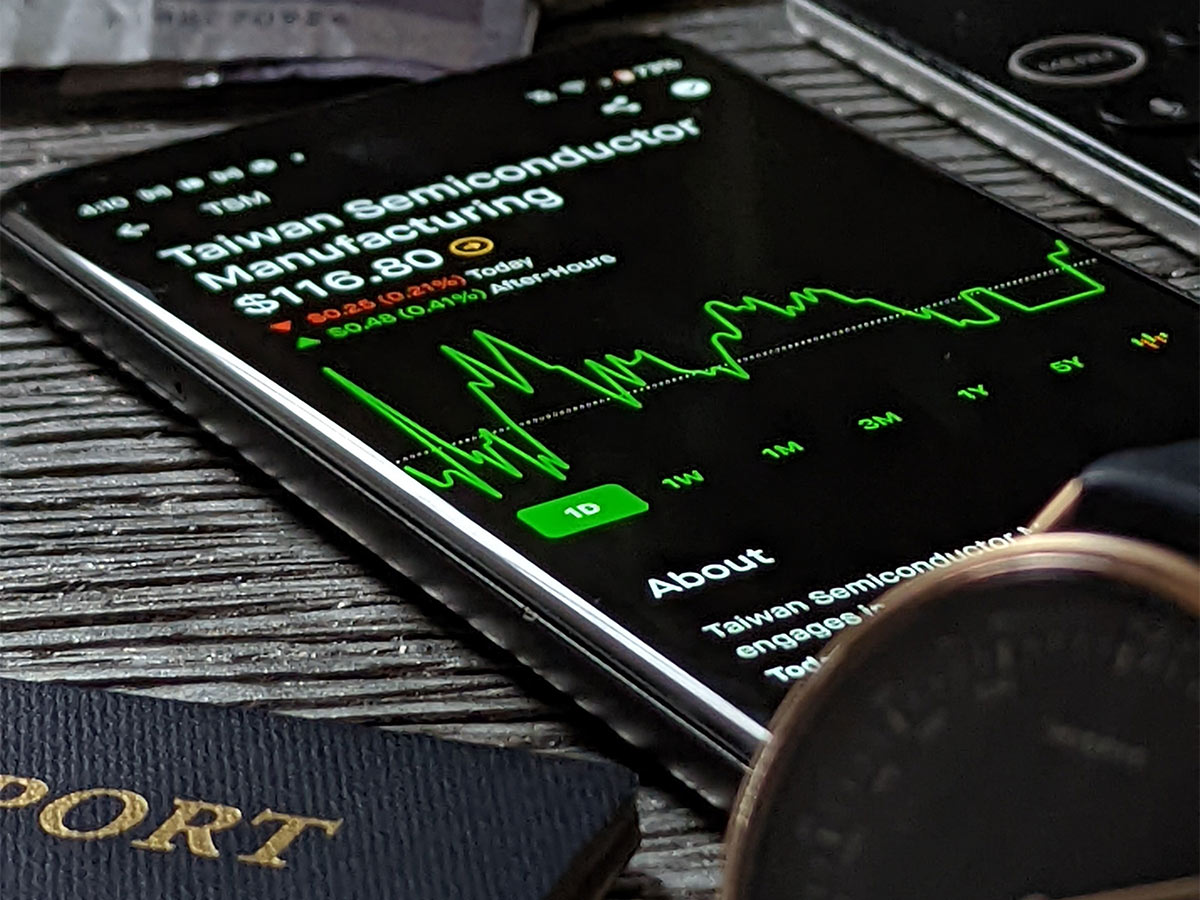
Your website says you built a USD100K investment portfolio in three years, is this really something anyone can do? Surely there must be restrictions?
Yes, I did it by applying my Wealth Creation System.
I started by investing in myself, I took a loan from the bank and invested over USD30,000 in high-level coaching programmes to learn about financial markets, digital marketing and building an automated digital business. I started increasing my income by doing affiliate marketing. We acquired two rental properties, started investing in the stock market making monthly contributions and re-investing my profits. I started tracking our expenses, understanding where our money was going and being mindful of our expenses. We established a will and recently have moved the registration of my company from France to a free zone in Dubai in order to pay less taxes. I work on my mindset every day, morning and evening and this is exactly how I think anyone can achieve any goal.
What would you say is the minimum amount a would-be investor needs to get started?
Most brokers nowadays don’t have a minimum amount to get started. Did you know that if you start investing only USD50 per month when your baby is born, by age 60 she will have USD1.8M by investing in a low-risk index like the S&P500? And what’s crazy is that the total contribution is only $36,050. Mind blowing, isn’t it? This is the power of compounding. Most people think that you need to be rich to start investing. This is a myth. Investing is not for the rich, it’s literally how you get rich, as long as you know what you’re doing. It is a must to build a strategy and only invest in assets that are in line with your risk tolerance and financial goals.
This is something I go into in further detail with in my free online masterclass How To Start Creating Wealth & Make Your Money Work For You.
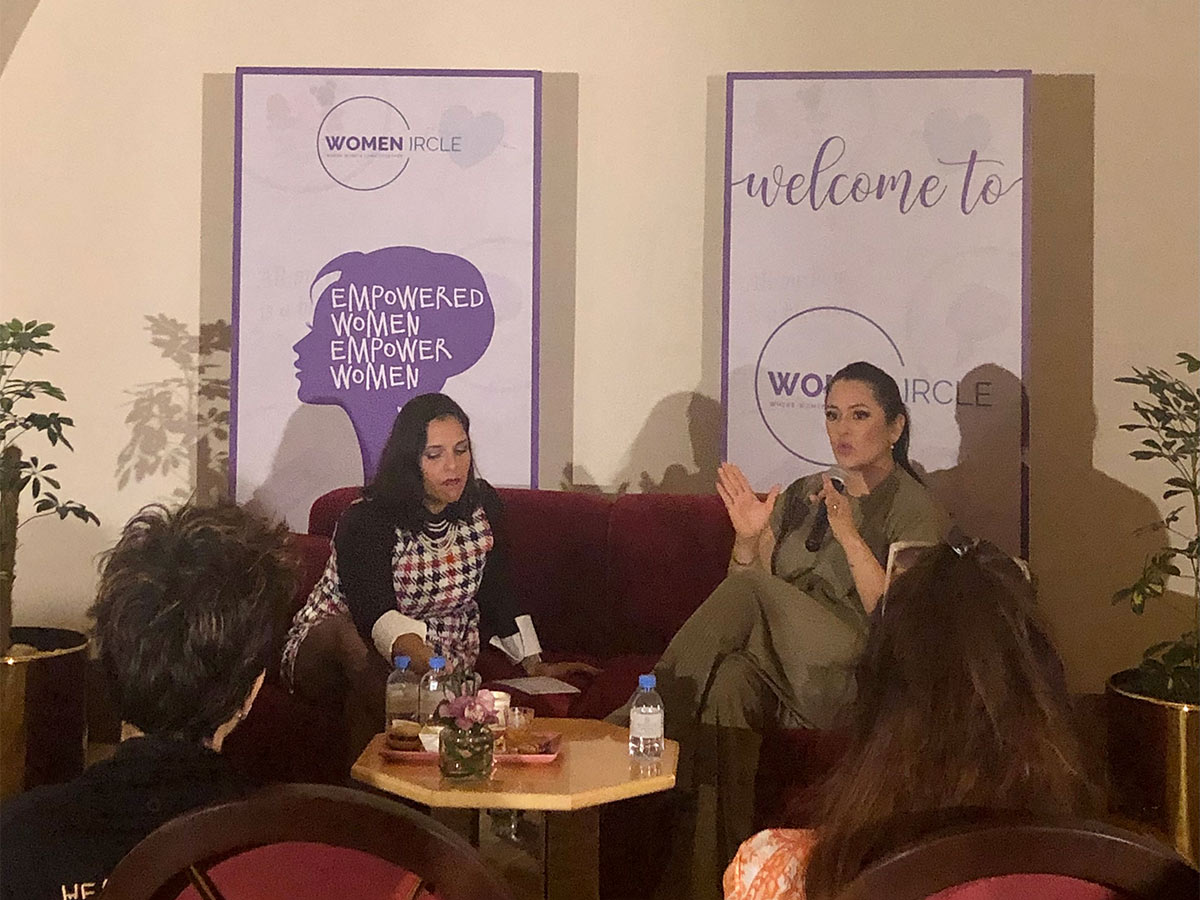
You are particularly focussed on educating and empowering women around money – why do you believe this is so important?
We women face a disadvantage when it comes to finances and investing. Over a lifetime, women tend to earn less than men, if we consider the wage gap as well as the fact that women tend to take more career breaks (motherhood, ailing parent, etc) which reduces our capacity to earn money. We also live longer than men which means we need more money in our retirement fund. So, we make less, we need more, and therefore we need to catch up.
Taking control of our finances also gives us freedom to say yes to things we want to do and to say no to situations that aren’t serving us. The tricky part is that we tend to believe that we’re bad with money. Most of us grow up with a culture of shame around discussing money. A T. Rowe Price survey revealed that parents would rather talk about drugs than bring up finances with their kids and a BECU Finance and Parents survey found that the majority of parents aren’t talking with kids about money, 82% of them cite fear as a barrier to having the conversation.
Other studies show that when money is discussed, the topics are usually different depending on the gender of the kid. Girls are taught to save their money and boys are taught to build wealth. This difference is also seen in the media. Starling bank in the UK did linguistic research analysing over 300 articles in magazines, and they uncovered huge discrepancies in the way that men and women are spoken to about money by the media. In women’s magazines, 65% of money articles define women as excessive spenders and advise them to limit, restrict and take better control of shopping ‘splurges’, and they’re then encouraged to maximise their economic contributions through forms of thrift like saving small sums, earning small amounts or finding a means of financial support, like a parent. Or a husband.
On the other hand, men’s articles talk more about being the breadwinner, increasing their income, investing and creating wealth. The financial confidence gap is real. Not being taught about money in the same proportion as men and not being educated on it is a disadvantage. This is the reason why, for instance, most women only apply to jobs when they feel they are 100% qualified while men apply when they feel they are 60% qualified. Or that married women take control of major financial decisions (like investing) only 27% of the time. Or that 60% of women don’t negotiate their salaries.
Another shocking fact is the amount of research showing that women are actually better investors than men! And the reason lies at a biochemical level because testosterone is the hormone of overconfidence, which plays AGAINST you when it comes to investing because overconfident people take more risk than they can afford. We [women] tend to hold our assets for a longer period of time, and do more diligent research about a potential investment because we are more driven by building safe and solid, long-term financial security.
The moment I learned this I was mind blown. Because this means we women, really do have an unfair advantage and a huge untapped potential when it comes to money and investing.
The financial and investing space is male dominated and this is something that affects the likelihood of women towards investing. If you grow up seeing someone that looks like you doing a certain activity, you are more likely to think ‘maybe I can do that too’ whereas if you never see someone like you doing that certain activity, somehow, somewhere you might think ‘maybe that’s not for me’. Representation matters. And this is why I’m here! ✤



